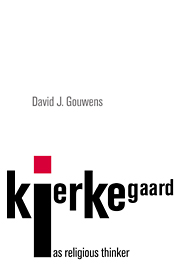
-
Select format
-
- Publisher:
- Cambridge University Press
- Publication date:
- October 2009
- February 1996
- ISBN:
- 9780511520112
- 9780521460316
- 9780521555517
- Dimensions:
- (228 x 152 mm)
- Weight & Pages:
- 0.494kg, 268 Pages
- Dimensions:
- (228 x 152 mm)
- Weight & Pages:
- 0.477kg, 268 Pages
- Subjects:
- Nineteenth-Century Philosophy, Religion, Philosophy, Theology
You may already have access via personal or institutional login- Subjects:
- Nineteenth-Century Philosophy, Religion, Philosophy, Theology
Book description
Using Kierkegaard's later religious writings as well as his earlier philosophical works, David Gouwens explores this philosopher's religious and theological thought, focusing on human nature, Christ, and Christian discipleship. He helps the reader approach Kierkegaard as someone who both analysed religion and sought to evoke religious dispositions in his readers. Gouwens discusses Kierkegaard's main concerns as a religious and, specifically, Christian thinker, and his treatment of religion using the dialectic of 'becoming Christian', and counters the interpretation of his religious thought as privatistic and asocial. Gouwens appraises both the edifying discourses and the pseudonymous writings, including the particular problems posed by the latter. Between foundationalism and irrationalism, Kierkegaard's ideas are seen to anticipate the end of 'modernity', while standing at the centre of the Christian tradition.
Reviews
‘... it is now the single most useful book available in English on Kierkegaard as a religious or theological thinker ... this is a remarkable book about an even more remarkable figure, and cannot be recommended highly enough.’
Source: Reviews in Religion and Theology
Contents
Metrics
Altmetric attention score
Full text views
Full text views help Loading metrics...
Loading metrics...
* Views captured on Cambridge Core between #date#. This data will be updated every 24 hours.
Usage data cannot currently be displayed.
Accessibility standard: Unknown
Why this information is here
This section outlines the accessibility features of this content - including support for screen readers, full keyboard navigation and high-contrast display options. This may not be relevant for you.
Accessibility Information
Accessibility compliance for the PDF of this book is currently unknown and may be updated in the future.


